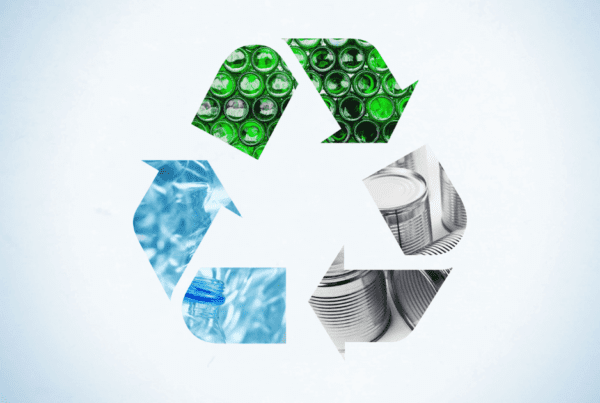HIGHLIGHTS | Types of COVID-19 tests
- Diagnostic tests tell you if you are currently infected with SARS-CoV-2.
- RT-PCR diagnostic tests are the standard of care and are considered highly accurate.
- Antigen diagnostic tests, often called rapid tests, return results much quicker but are less accurate.
- Antibody, or serology, tests tell you if you had a past SARS-CoV-2 infection and are also highly accurate.
RT-PCR, antigen, antibody — with so many different types of COVID-19 tests out there, it can be hard to know what type of test you need.
To help clear up the confusion, Geoffrey Baird, MD, PhD, interim chair of the Department of Laboratory Medicine and Pathology, offers this primer on COVID-19 testing and what we can expect to see in the future.
Types of COVID-19 tests
There are two overarching categories of COVID-19 tests: diagnostic tests and antibody tests, also known as serology tests.
Diagnostic tests are used to determine if you have an active SARS-CoV-2 infection. Antibody tests, on the other hand, are used to determine if you had an infection in the past.
Despite revised guidance from the Centers for Disease Control and Prevention (CDC), UW Medicine still recommends you get a diagnostic test if you’re experiencing symptoms of COVID-19 or if you were in close contact with someone who was infected, even if you don’t feel sick.
How diagnostic tests work
While all COVID-19 diagnostic tests are used to determine if you’re currently infected with SARS-CoV-2, not all diagnostic tests work the same way.
RT-PCR tests
You may have heard of something called a RT-PCR test — sometimes shortened to PCR — which stands for a “reverse transcriptase-polymerase chain reaction” test.
“It is a chemical technique that can copy and amplify genomic information, for example, a small part of the SARS-CoV-2 genome,” Baird explains. “Because we need to detect very few viral particles in a sample to diagnose the disease, we need to amplify the signal so we can see it.”
Right now, this type of test is considered the standard of care in respiratory viral testing. That’s because it’s the most sensitive (meaning it’s accurate in returning a positive result for people who have COVID-19) and specific (meaning it’s accurate in returning a negative result for people who don’t have COVID-19) test available.
Samples for RT-PCR tests can be collected in a few different ways, but the most common methods are via swab or saliva.
For swab samples, a swab is inserted into your nose and rotated in the front (anterior nares), middle (mid-turbinate) or back of your nose (nasopharyngeal) in order to collect sample fluid or cells. The type of nasal swab you receive may vary by testing site and available supplies.
Saliva samples are collected directly by spitting into a tube or cup.
“Saliva is easier to collect, often, than a nasal swab, but saliva is often more difficult for our lab machines to work with, and may be less sensitive than swab testing,” Baird says. “This means that there may be a risk of ‘false negatives,’ where the test comes up negative even though the patient is infected.”
UW Medicine’s Virology Lab currently performs between 6,000 and 8,000 RT-PCR tests each day. Although turnaround time can vary depending on transportation and a backlog of work, 90% of RT-PCR test results at UW Medicine are returned in less than 24 hours.
UW Medicine also collects and conducts a limited number — fewer than a dozen per day — of rapid RT-PCR tests in its hospitals, with turnaround times ranging from 45 minutes to two hours.
Antigen tests
The other main type of diagnostic test for COVID-19 is the antigen test. Rather than detecting the genome of the SARS-CoV-2 virus like RT-PCR tests do, these tests detect the virus’ structural proteins.
“These tests work by mixing a sample from a swab with chemicals called antibodies that bind to the proteins,” Baird says. “If enough protein is present, one can see a color appear, indicating a positive.”
Antigen tests work in the same way as an over-the-counter pregnancy test might. You simply add the sample and wait for the “stripe” to appear.
These tests are known for having fast turnaround times, sometimes within 15 minutes, making it easier to conduct at the point of care. While antigen tests are commonly referred to as rapid diagnostic tests, keep in mind that some rapid tests are RT-PCR tests and others are antigen tests.
While antigen tests are faster than standard RT-PCR tests, they are not as sensitive or specific as RT-PCR tests, meaning they may return a “false negative” or “false positive” more often. These tests also require more of the virus in the sample to result in a positive, so while they may be effective for people who are experiencing symptoms, they may not work as well for asymptomatic patients.
UW Medicine does not currently offer COVID-19 antigen testing.
Other types of diagnostic tests
The landscape of COVID-19 testing has changed greatly over the course of the pandemic, and new technologies may soon result in additional types of diagnostic tests and ways that samples are collected.
Swab-and-send kits are currently being used by UW Medicine researchers with the Seattle Coronavirus Assessment Network to diagnose patients in the home setting.
Other researchers are investigating whether samples from stools or urine can be used to detect the SARS-CoV-2 virus.
“There are additional hybrid technologies — for example those that use CRISPR to detect SARS-CoV-2’s genome like a RT-PCR test, but to effect a readout that is similar to a rapid antigen test,” Baird says. “Whether or not these tests will gain traction is unclear.”
How antibody tests work
COVID-19 antibody tests, or serology tests, aren’t used to determine if you have an active infection but rather if you were infected in the past.
When you’re infected with a virus, your immune system produces antibodies, molecules made by specialized white blood cells to fight against the virus.
“Antibodies can persist long after the virus is gone,” Baird explains. “Thus, if we test your blood and find antibodies, it likely means that you had an infection with SARS-CoV-2 at some point in the past.”
Unlike diagnostic tests, antibody tests rely on blood samples, generally collected via the arm like a standard blood draw. At UW Medicine, antibody test results are usually available the same day the sample is collected or within 24 hours.
Although many early antibody tests that were made available to the public performed poorly, current antibody tests — including the one used at UW Medicine — are very sensitive and specific.
“Our antibody test is very close to 100% sensitive and more than 99.6% specific,” Baird says.
While public health experts and researchers are using antibody testing to determine the breadth of COVID-19’s spread in the community, Baird cautions that results can’t tell you if you are immune to the disease.
“Results do not necessarily correlate with immunity, meaning you could be positive on one type of antibody test but still be vulnerable to infection,” he explains. “We have only known about this disease for less than a year, so we do not know how long antibodies last for.”


